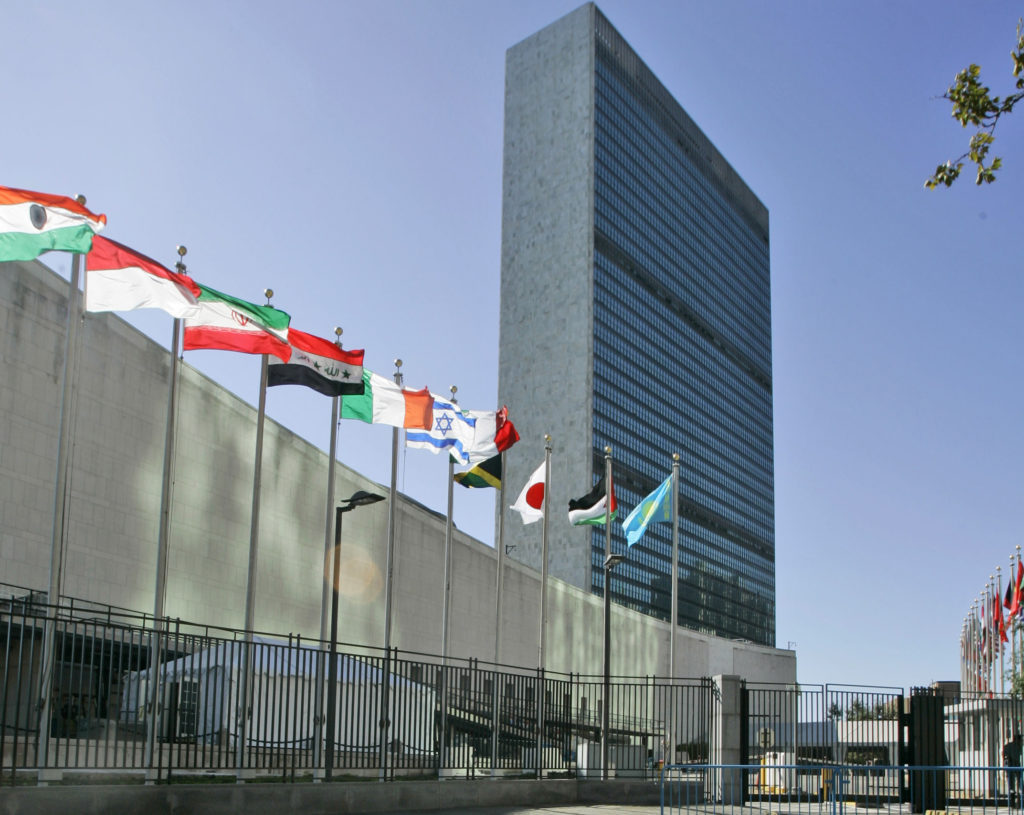A United Nations panel of experts recommended Thursday that the Security Council draft future sanctions against North Korea with a focus on its cyberattacks.
The experts made the recommendation in a new report to the UN Security Council committee monitoring sanctions implementation against the North, saying the regime is estimated to have illegally acquired as much as $2 billion through cyberattacks.
The report covered the period Feb. 2 - Aug. 2, and detailed the regime's increasingly sophisticated evasion of financial sanctions by cyber means.
"These activities contribute to the DRPK's WMD program," the document said, quoting an unidentified UN member state. DPRK stands for North Korea's official name, the Democratic People's Republic of Korea. WMD refers to weapons of mass destruction.
 |
United Nations headquarters (AP) |
"The Panel recommends that the Security Council, when drafting future sanctions measures, highlight the gravity of cyber-attacks carried out by the DPRK to circumvent the (sanctions) resolutions by illegally generating revenue for the country," the report said.
The panel also said it is conducting investigations into at least 35 reported cyberattacks involving North Korean actors. The attacks allegedly targeted financial institutions, cryptocurrency exchanges and mining activity designed to earn foreign currency in countries such as South Korea, Bangladesh, India and Chile.
South Korea was targeted the most, with 10 reported cases.
"DPRK mostly attacks ROK crypto currency exchanges from within the DPRK," the report quoted a member state as saying, referring to South Korea by its official name, the Republic of Korea.
The report also described a shift in North Korean cyberattacks on South Korean targets from those focused on generating financial revenue in 2016 to those on cryptocurrency exchanges in 2019.
Sanctions evasion also continued in the export of coal and import of refined petroleum, according to the panel.
In the first four months of 2019, the North had imported refined petroleum in excess of the 500,000 barrels-per- year cap imposed by the Security Council, the panel said, citing a US report to the sanctions committee.
The imports were mainly enabled by illicit ship-to-ship transfers at sea, it said, adding that, "assuming fully-laden tankers, the import cap would have been exceeded by at least 100 percent, at an estimated total of 1.093 million barrels."
The US report requested that the committee call out the North's breach of the cap and urge UN member states to halt all future transfers of refined petroleum, but the move was blocked by Russia and China, the panel noted.
The panel also recommended that the committee blacklist two North Korea-flagged vessels for conducting illicit ship-to-ship transfers of petroleum products.
Also in the first four months of 2019, the North exported 930,000 metric tons of coal in violation of a UN ban, according to the experts' report. (Yonhap)








